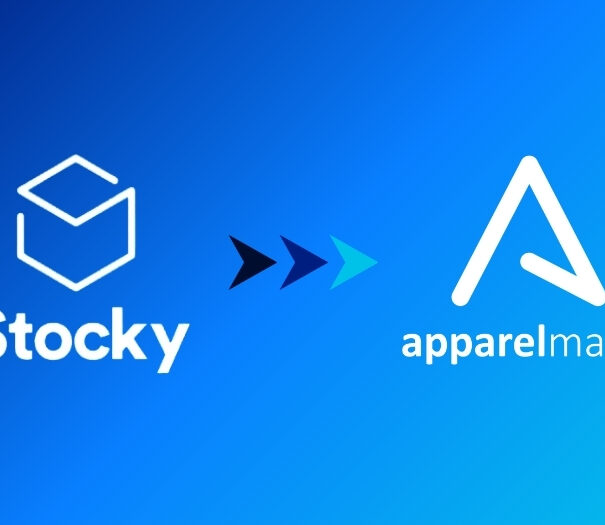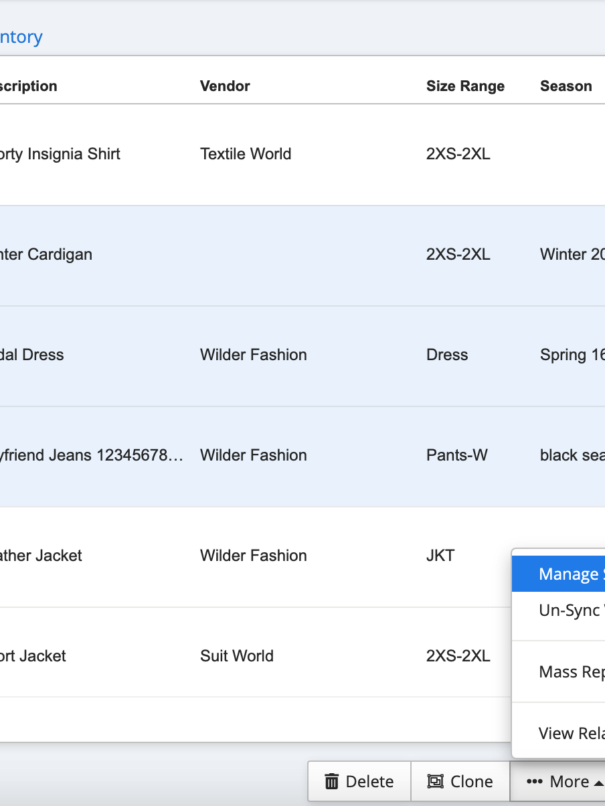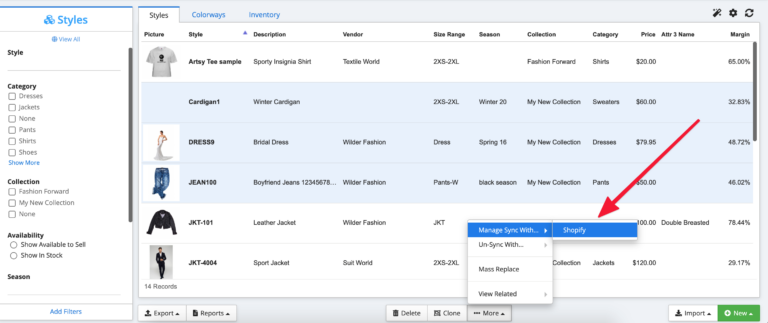Running small and medium-sized enterprises (SMEs) is not an easy feat. You’re juggling a lot—sales, inventory, customer relations, finances, and so much more. It can feel like you’re spinning plates, trying to keep everything balanced without letting anything crash. That’s where an ERP (enterprise resource planning) system steps in, and trust us, it’s a game-changer.
If you’ve been on the fence about whether your SME really needs an ERP, here are ten solid reasons why it makes perfect sense.
Let’s take a look at how ERP for small and medium enterprises can transform business operations, enhance efficiency, and set up long-term success opportunities.
Streamlined Operations
ERP systems streamline business operations. They eliminate the need for hopping between different software for inventory, accounting, and sales. An ERP brings all these functions under one roof, making your workflows a whole lot smoother. Imagine this: instead of juggling multiple tools and systems that don’t talk to each other, you have one solution that connects every part of your business.
In a nutshell, with an ERP, each part of your business, from order processing to payroll, works together seamlessly, which frees up your time and energy to focus on what really matters—growing your business.
Making Informed Decisions
You can’t afford to make decisions based on old data. With an ERP, you get real-time information across all aspects of your business. That means you’re making decisions based on what’s happening right now, not on what happened.
With modern ERPs, you have access to real-time dashboards that give you a clear view of your business’s current state. Remember real-time data isn’t just for decision-makers. Your entire team benefits when everyone has access to the same up-to-date information. Whether it’s your sales team checking stock levels before closing a deal or your finance team tracking expenses, real-time data empowers your employees to work smarter and more efficiently.
Getting More Done
We all know that time is money, especially for small businesses. An ERP system boosts your efficiency by automating repetitive tasks, reducing manual errors, and speeding up processes. You and your team can get more done in less time, which means more time to focus on growing the business rather than getting bogged down in the day-to-day grind.
Business process automation is one of the biggest efficiency boosters an ERP brings to the table. Tasks that used to take hours, like data entry, invoicing, or generating reports, can now be completed in a fraction of the time with minimal human intervention. And because these tasks are automated, the risk of errors—like a misplaced decimal point or a forgotten invoice—is dramatically reduced.
Moreover, ERP systems often come with workflow management tools that streamline complex processes. For example, approving purchase orders or managing multi-step projects becomes simpler and faster, with automatic notifications and reminders to keep things on track. This means less time spent chasing down approvals and more time spent on activities that drive revenue and growth.
Enhanced Customer Experience
Customers are the heart of any business, and keeping them happy is key. A good ERP for small and medium enterprises provides a better customer experience by ensuring that orders are processed quickly, inventory levels are accurate, and customer information is easily accessible. When everything runs smoothly, your customers notice—and they keep coming back.
Let’s say a customer calls to check on the status of their order. With an ERP, your team can instantly pull up their information, see where the order is in the process, and provide a precise update. No more digging through emails or calling around to different departments for answers. This kind of efficiency not only impresses customers but also builds trust.
And it’s not just about speed. An ERP system can also help you personalize the customer experience. By integrating with your CRM (customer relationship management) system, you can track customer preferences, order history, and even special requests. This data allows you to tailor your interactions and offer personalized recommendations, making customers feel valued and understood.
Better Inventory Management
Inventory management can be a headache, but an ERP system makes it much more manageable. With real-time tracking, automated reordering, and accurate forecasting, you can keep your stock levels just right—no more overstocking or running out of key items. It’s like having an inventory expert on your team 24/7.
One of the biggest challenges in inventory management is finding the balance between having enough stock to meet demand without tying up too much capital in inventory. An ERP system helps you strike that balance by providing real-time insights into your inventory levels, sales trends, and reorder points. This means you can make informed decisions about when to reorder, how much to order, and which products to prioritize.
Moreover, an ERP system can help you optimize your warehouse operations. By integrating with barcode scanners and other warehouse management tools, an ERP can streamline your picking, packing, and shipping processes. This leads to faster order fulfillment, fewer errors, and happier customers.
Integration with Other Tools: Making Your Life Simpler
One of the great things about modern ERPs is how well they integrate with other tools you’re already using. Whether it’s your CRM, e-commerce platform, or accounting software, an ERP can bring everything together in one cohesive system. It’s like having all your favorite tools work together seamlessly, without the hassle of manual data entry or switching between programs.
Integration is crucial because it eliminates data silos – isolated pockets of information that don’t communicate with each other. When your CRM doesn’t talk to your accounting software or your inventory system isn’t integrated with your e-commerce platform, you end up with disjointed processes, duplicate data entry, and a lot of unnecessary headaches.
With an ERP, everything is connected. Your sales team can see inventory levels in real time, your finance team can access up-to-date sales data, and your customer service team can pull up complete customer histories with a few clicks. This kind of integration not only improves efficiency but also provides a more comprehensive view of your business, making it easier to identify opportunities for growth and improvement.
Competitive Edge
Stagnating is the same as falling behind. An ERP system gives small and midsize enterprises the competitive edge they need to stay ahead. With better data, streamlined processes, and the ability to scale quickly, you’re not just keeping up with the competition—you’re setting the pace. And that’s how you win in business.
The competitive landscape for SMEs is tougher than ever. Larger companies have the resources to invest in the latest technology, while new startups are often more agile and quick to adapt. An ERP system levels the playing field by giving you the tools to compete effectively, regardless of your size.
For instance, with an ERP, you can respond more quickly to market changes, optimize your pricing strategy based on real-time data, and deliver exceptional customer experiences that set you apart from the competition. In short, an ERP helps you stay ahead of the curve by making your business more efficient, responsive, and innovative.
Scaling Effortlessly
As your business grows, so do your needs. The beauty of an ERP system is that it grows with you. Whether you’re adding new products, expanding into new markets, or just handling more transactions, an ERP can scale to meet your demands without a hitch as these business solutions are built to last and grow around your needs.
Scaling a business isn’t just about handling more transactions; it’s about managing complexity. As you expand, you’ll likely face new challenges, like managing multiple locations, dealing with international customers, or complying with different regulations. An ERP system can help you navigate these complexities by providing the tools and insights you need to manage growth effectively.
For example, if you expand into a new market, your ERP can help you track regional sales, manage local inventory, and ensure compliance with local regulations—all from the same platform you’ve been using since day one. This kind of scalability is essential for sustained growth and success.
Cost Savings
Investing in an ERP for small and medium enterprises might seem like a big expense upfront, but the cost savings it brings can be substantial. By streamlining processes, reducing errors, and improving efficiency, an ERP helps you cut down on wasted time and resources. In the long run, it’s an investment that pays for itself many times over.
Consider the costs associated with manual errors—like incorrect orders, missed deadlines due to supply chain management issues, or mismanaged inventory. These mistakes can add up quickly, both in terms of direct financial losses and damage to your reputation. An ERP helps you avoid these pitfalls by automating processes and providing real-time data, which leads to fewer mistakes and more accurate operations.
Additionally, an ERP can help you optimize your inventory levels, reducing the costs of overstocking or running out of stock. With better forecasting and demand planning, you can maintain just the right amount of inventory to meet customer demand without tying up too much capital in unsold goods. Over time, these savings can significantly impact your bottom line.
Ensuring Compliance
Compliance is critical, but it can be time-consuming and prone to errors if managed manually. This is where an ERP system can make a significant difference. By automating compliance processes and providing accurate, real-time data, an ERP helps you stay on top of regulatory requirements and minimize risks.
For example, an ERP system can automatically generate reports for tax filings, financial audits, or industry-specific certifications, ensuring that your business meets all necessary compliance standards. It also keeps detailed records of all transactions and operations, making it easier to trace back and address any compliance issues that arise.
Wrap-Up
Using an ERP for small and medium enterprises isn’t just about keeping up; it’s about staying ahead. It’s about making smart decisions, running efficiently, and giving your customers an experience that keeps them coming back. In short, it’s about making your business the best it can be. So if you’re ready to take your SME to the next level, an ERP might just be the key to getting there.







